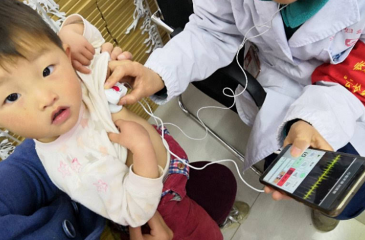Among the approaches to address health disparities, new healthcare innovations have the potential to improve health equity and accessibility. At the University of Minnesota, CTSI’s Office of Discovery and Translation (ODAT) is supporting the development of novel solutions designed to reduce health disparities due to geographic location, race, gender, socioeconomic status, disability, sexual identity and orientation.
The need for low or no-cost products, fostering public-private collaborations, and developing strategies to sustainably reach beyond the University often affects how these innovations originate and advance," said Jodi Rebuffoni, Senior Program Manager for ODAT.
Through collaborations with the Office of the Vice President for Research’s Technology Commercialization office and other innovators and teams, across the University and beyond, we are better able to understand these unique factors. The result is healthcare products that meet the needs of all communities, including communities often overlooked or marginalized in healthcare."
Healthcare access barriers in Minnesota
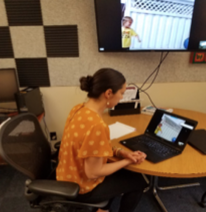
Jessica Simacek, PhD and Adele Dimian, PhD are developing Bridges2Families, a telehealth platform that uses caregiver coaching to deliver early intervention and support strategies for children with Autism Spectrum Disorder (ASD) and other neurodevelopmental disabilities. Parents throughout Minnesota seeking a medical diagnosis of ASD for their child face barriers accessing diagnosis and intervention either due to long waitlists or residing in locations without access to qualified providers. Many families are faced with a delay of 9-12 months to be evaluated for autism, and another waiting period before intervention services begin. This novel approach to early intervention, which includes parent modules translated into Spanish, Somali, and Hmong, aims to supplement and bridge the gaps between diagnosis and intervention services.
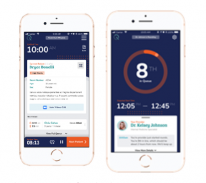
Mike Pitt, MD and John Sartori, PhD have utilized ODAT funding (through its Pediatric Health Innovation Program) to advance the development of Q-rounds, a sophisticated software tool to improve the hospital rounding experience for providers, patients and families. Anticipated rounding times change frequently due to urgent issues that arise with other patients. Coordination challenges are compounded by having family members outside of the hospital who would like to be part of care decisions, including an interpreter if there are language barriers, and new visiting restrictions caused by the COVID-19 pandemic. Q-rounds addresses these common challenges, and the research team successfully completed beta pilot testing of the technology within specific units at Masonic Children’s Hospital. They are now optimizing the tool for a larger pilot across multiple hospital systems.
Local efforts, global health
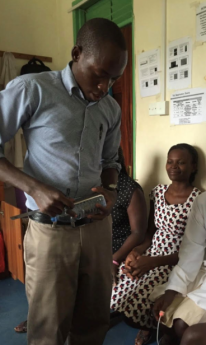
A BCPAP team member teaches a group how to make BCPAP (marking the bottle with 1cm lines) at the Pediatric Acute Care Unit office at Gulu Regional Referral Hospital.
Tina Slusher, MD, Ashley Bjorklund, MD and Andrew Wu, MD received ODAT funding to develop modified nasal seal for low-cost bubble CPAP and novel low-cost oxygen blender technologies that can be assembled using locally available materials in low-resource settings to provide pediatric respiratory support. They demonstrated safety and showed a trend toward decreased morbidity and mortality using the modified CPAP in a pilot clinical trial in non-neonatal children. The research team is now working to complete a larger efficacy study to further support dissemination and implementation of their methods.
A telemedicine innovation developed in collaboration between UMN’s Matthew Ambrose, MD and One Heart Health, uses software to transmit data to remotely-located cardiologists to screen for congenital heart defects (CHD). The alpha version of the app, developed with support from ODAT and the Chao Foundation, was used in China to screen more than 25,000 children for CHDs. A total of 51 children were identified as having cardiac concerns requiring follow up, and five of them received life-saving surgeries. One Heart Health continues to advance and refine the software for clinical impact.
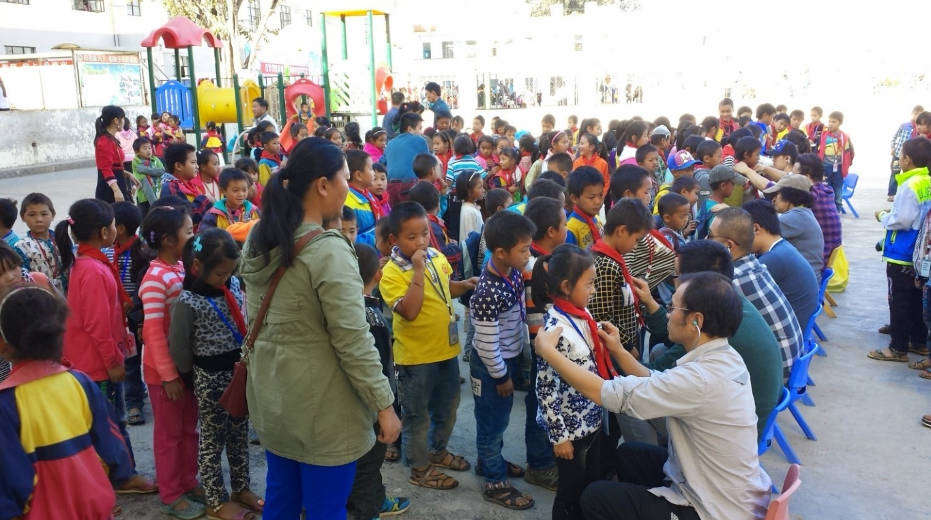
Bloom Standard is an affordable automated ultrasound technology that is intended for pediatric heart and lung imaging with a variety of users and healthcare settings. ODAT supported early proof-of-concept development and testing in a collaboration between UMN Pediatric Cardiologist, Jamie Lohr, MD, and the Newborn Foundation. Bloom Standard was invited to present the device to an expert panel as part of a technology review for the World Health Organization (WHO) COVID-19 Compendium of Innovative Technologies for Low Resource Settings. This device is now poised to begin initial clinical testing.
Natasha Wright, PhD, Michelle Rheault, MD and Ibrahim Yekinni, MBBS, are working to increase access to peritoneal dialysis for pediatric patients with kidney disease in low-resource settings by addressing the rate limiting step - access to dialysis fluid. The research team received a 2020 ODAT award to develop rapid, on-demand peritoneal dialysis fluid compounding for low resource settings.
Advancing accessibility and inclusion
Innovations created specifically for individuals with disabilities can be particularly helpful in improving quality of life. Products from adaptive clothing to specialized medical equipment can lower the barriers that may prevent or limit participation in school, work, sports, social activities or independent living. While ODAT applies a lens of inclusive product design to all supported projects, these innovations directly aim to increase accessibility and inclusion.
A collaboration between ODAT, the PDIC, and other University and community-based stakeholders led to the development of a software-based tool to improve predictability and understanding of changes in routines in individuals with ASD and other neurodevelopmental disabilities. This innovation could be used in home, school, healthcare or employment settings to support functional communication and improve engagement in activities from medical procedures to job skills. UMN start-up company, Speech & Language Collaborative, licensed this technology in June 2020 and continues to advance development efforts.
Dr. Gary Goldish and a team of engineers from the VA Medical Center and UMN Department of Physical Therapy and Rehabilitation received an ODAT award to develop a caregiver-guided motor to assist in wheelchair operation. Wheelchairs can be difficult for caregivers to push and manipulate during community outings. The physical requirements to push a wheelchair longer distances may limit participation in activities outside of the home. The novel device, which is now a functional prototype, reduces the physical burden of propelling the wheelchair for care providers.
To further support these focus areas of innovation, ODAT has issued a targeted request for applications (RFA) for projects advancing health equity and accessibility. This RFA is jointly issued with the PDIC, with particular emphasis on innovations for pediatric patients and rural health. Applications are due by April 28, 2021. See ODAT Translational Grant Program for details and to apply.
